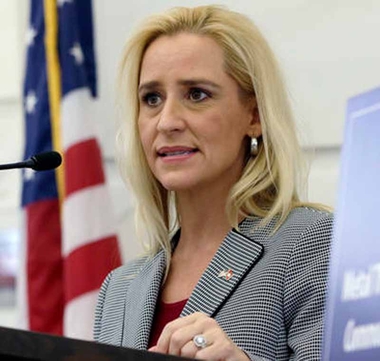Ark. high court continues to stall over Fayetteville LGBT ordinance

Little Rock, Ark.— Arkansas' highest court on Thursday halted efforts to depose two state legislators and seek documents related to a 2015 law banning cities and counties from enacting anti-discrimination protections for LGBT people.
The Arkansas Supreme Court issued a one-page order halting the depositions and the document requests while it considers the state's argument that the materials don't have to be released to attorneys in the case. The one-page order stems from an ongoing legal fight over the constitutionality of a state law prohibiting cities from enacting protections not covered by state law. Arkansas' civil rights law doesn't cover sexual orientation or gender identity.
The state had sought to halt the depositions of the sponsors of the law and other requests from the city of Fayetteville and the American Civil Liberties Union for documents related to the ban, saying it would have "eviscerated" long-standing protections for legislators. A Washington County judge earlier this month refused to halt subpoenas, and said legislative privilege doesn't protect lawmakers from being questioned about anything other than speeches or debates that occur in either chamber of the Legislature.
For more on Fayetteville’s fight to protect LGBT+ citizens, visit:
Arkansas continues to fight pro-LGBT+ ordinance
Analysis: Ruling won't end fight over local LGBT protections
Key legal test approaches for Arkansas LGBT measure.
"The attorney general is grateful that the state Supreme Court has stayed discovery and agreed to take the case," Judd Deere, a spokesman for Attorney General Leslie Rutledge, said. "As she has argued, the lower court was incorrect in its ruling regarding executive and legislative privilege."
The issue is part of an ongoing court case over Fayetteville's ordinance banning discrimination based on sexual orientation or gender identity. The court ruled earlier this year that the city's ordinance violated the ban on local protections for lesbian, gay, bisexual and transgender people. Justices sent the case back to Washington County and said they couldn't rule on the state law's constitutionality yet since it wasn't addressed in the lower court.
Fayetteville had argued a stay wasn't needed and it would have been better to allow both sides to agree on what documents and testimony would have been privileged. Fayetteville City Attorney Kit Williams said the state's argument would be an expansion of lawmakers' protections.
"I'm concerned that they are placing legislators in such a position where they can make statements that you and I would be responsible for away from the chambers," Williams said. "That kind of like a two tier system."
By Andrew DeMillo, Associated Press. Copyright 2017 Associated Press. All rights reserved.
The Gayly – October 27, 2017 @ 10 a.m. CDT.





